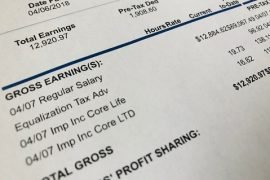Those hearing it for the first time might find it heartbreaking and demoralizing, however, a research showed that a recruiter only takes 6 seconds to skim through a CV or a resume. For any given job vacancy, there are numerous talented and suitable applicants for the job. However, their achievements get glanced at for merely a few seconds and if they are lucky, they might get an interview call. If you want to try your luck outside of job interviews, online gambling sites such as casino 777 slots are the way to go.
If you have applied for countless job openings but received very few incoming calls from any prospective employer, your CV might not be up to the standards. Below are 5 tips you can use to write an attention-worthy CV and advertise yourself for your dream job.
1. Avoid using personal emails
It is essential that any personal details, including but not limited to name and email, are presented professionally. A good idea is to create a separate email for professional purposes, so any emails related to the applied job opportunities are viewed in a segregated space.
It is a common practice for applicants to also include their personal emails in the resume, which receives numerous emails from the restaurants they have visited recently, or a clothing brand they regularly shop from. A work-related email is more likely to be ignored in a clutter of useless weekly subscription content.
2. Emphasis on Professionalism
It is critical that your work email and other details are presented as formally as possible. Never use an email address with too many numbers, informal slangs, or add any content that does not make sense. A recruiter is more likely to form a negative impression and would consider an applicant as nonchalant as opposed to being responsible and formal.
Lack of professionalism while writing a CV is similar to acting unprofessional in an interview. If an applicant is neglectful in terms of formalism, it reflects that the applicant is likely to continue the same behavior if provided with the job opportunity.
3. Choosing the right format
Even though it sounds basic, it is amazing how many applicants get this part wrong. The roots of a CV will always stay the same, and it is important to build a CV based on the right format. A key point to consider is writing a CV in a chronological manner, starting from the most recent work experience and/or achievements. You just cannot jumble up the order of your work experience as you will, or you can kiss your perfect job opportunity goodbye.
Another tip worth mentioning is using the upper middle area of your CV page to attract the recruiter since it is the focal point of the whole document. An applicant should make it count by adding their core competencies and work experiences in that particular spot.
4. Backing your claim with key statistics
When writing about previous work experience, stating your responsibilities is not enough. Many applicants include generic sentences such as “managed and supervised inventory and supply-chain operations”. What most applicants oversee is including specific details about their responsibilities, thereby failing to paint the picture for the employer fully. Recruiters are more interested in achievements and actions that have benefited previous employers.
An example would be “Recommended and Implemented ABC analysis model, reducing holding inventory costs by 20%”. This description mentions what an applicant did as a part of their responsibility and consequently, how the employer or organization benefited from it.
5. Emphasizing Soft Skills
Even when applying for a technical job, it is always important to highlight soft skills that an applicant possesses. While some jobs may not require hard skills, all jobs require soft skills such as team management, proactive mindset, and cultural values such as diversity and inclusion.
No matter how perfect you think you are for the position, if you lack basic soft skills, there is a slim chance you will get the phone call you so desperately are waiting for. Lack of soft skills shows an inability to cooperate and function smoothly with other professionals in a workplace.







